Buy Blue and Gold Macaw Parrots Online – For Sale
Buy Blue and Gold Macaw Parrots typically live in the forests near rivers and swamps, though they can be found in a grassy savannah if it has tall trees. In the wild, blue and gold macaws enjoy a wide range from Panama in Central America, extending into almost every country of northern South America. One of the most readily available of macaws, and also one of the most inexpensive, the blue and gold macaws are a popular choice as pets.
As pets
The vibrant coloring and talking ability makes the blue and yellow macaw a good choice for a pet. But owners have to be dedicated in your interaction with the bird to get the best companionship out of it. Also, the loud vocalizations and large size make it a wrong choice as an apartment pet.
Housing
They will require a roomy cage, at least 3’x2’x5’. Provide sturdy perches, toys, both for playing and chewing. You can dedicate a room in your house for your bird, or you can put it in an outdoor aviary. Let it spend some time, preferably a minimum of 2-3 hours outside the cage.
Temperament
They make an ideal family bird because of their gentle personality, usually having a rapport with more than one person, although they may prefer someone slightly over others. As with all macaws, they do get aggressive and nippy sometimes. Their strong beaks can easily sever off a finger or two. You must socialize your bird with as many people as possible to get the best behavior out of it in different situations.
Feeding
Give your blue and gold commercially made pellet and seed mixes specially prepared for macaws. They also may like something that you’re having, and you can feel free to share as long as the food is nutritious. Chicken can be a good source of protein and also falls in the favorite foods category. Avoid feeding the bird chocolate and avocado as both of these are toxic to them.
Health problems
They are a hardy bird, but some of the health problems they may suffer from are:
- Proventricular Dilation Disease
- Psittacosis
- Bacterial, fungal or viral infections
- Feather picking
- Beak malformation (chicks)
- Papillomas
- Kidney disease
- Allergies
- Feather picking as a result of boredom, unhealthy diet, not bathing and sexual frustration
- Heavy metal poisoning
- Lipomas (older individuals)

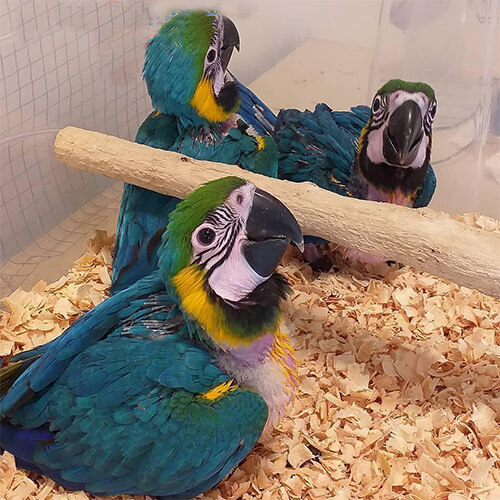

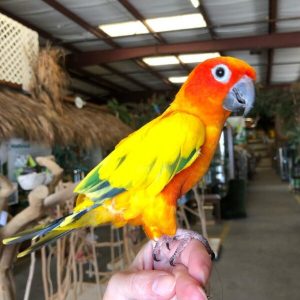

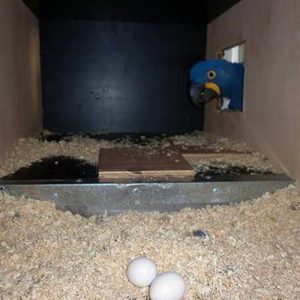
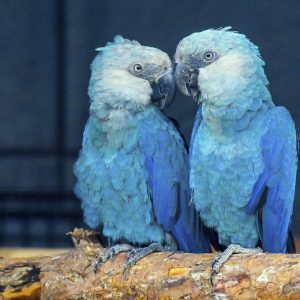
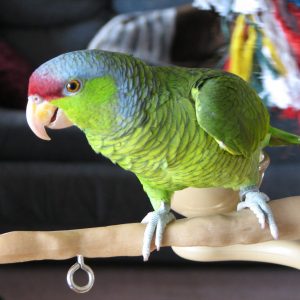


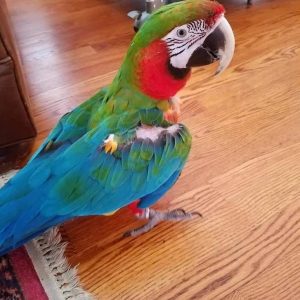
Marcy –
Thanks i received my bird so lovely.